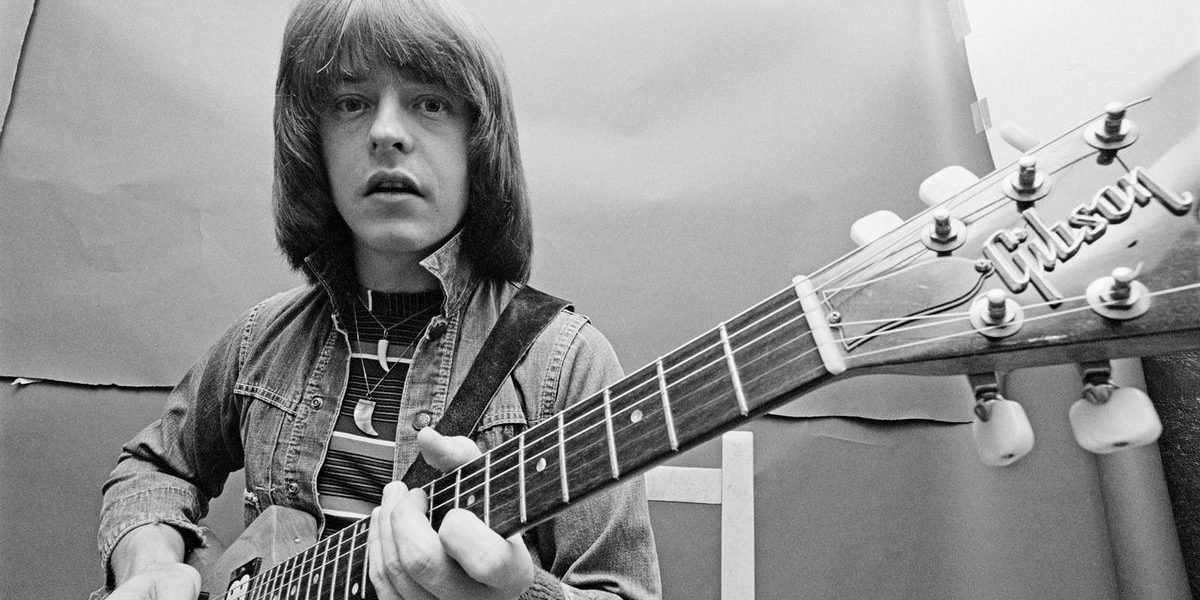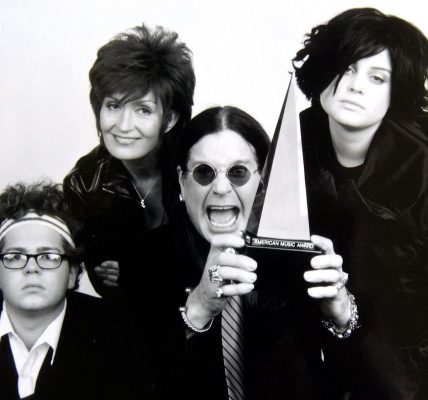Renowned guitarist, prolific songwriter, and esteemed producer Rick Derringer, who created and contributed to an impressive array of hit songs over several decades, passed away on Monday at the age of 77, leaving behind a remarkable legacy in the music industry.
The somber news was shared by Derringer’s caretaker, Tony Wilson, via Facebook, and subsequently reported by Guitar Player. According to a statement from his wife, Jenda Derringer, to TMZ, he died peacefully in his sleep after being taken off life support following a serious medical incident.
Exploring the Life and Musical Journey of Rick Derringer
Born as Richard Dean Zehringer on August 5, 1947, in Celina, Ohio, and raised in the nearby Fort Recovery, Derringer embarked on his musical journey at a very young age, receiving his first guitar on his ninth birthday. He famously remarked, “I was a natural,” during an interview with Guitar Player in 2024. Alongside his brother, Randy Zehringer (who later adopted the stage name Randy Z), he formed a band called the McCoys during their teenage years, where Derringer took on the roles of guitarist and lead vocalist.
The McCoys achieved significant success in 1965 when they scored a No. 1 hit on the Billboard Hot 100 charts with their iconic song “Hang on Sloopy,” which later became recognized as the official rock song of Ohio. They also enjoyed another Top 10 hit with their rendition of the classic R&B track “Fever,” and their cover of Ritchie Valens‘ “Come On, Let’s Go” made it into the Top 40, further solidifying their place in music history.
READ MORE: Discover the Story Behind How the McCoys Reached the Top of the Charts with ‘Hang on Sloopy’
In 1970, the McCoys collaborated with Texas blues-rock legend Johnny Winter on his album Johnny Winter And, which also became the name of the group. Following this, Derringer began working alongside Winter’s brother, Edgar Winter, contributing to the success of the Edgar Winter Group and their multiplatinum debut album from 1972, They Only Come Out at Night.
As Derringer prepared for his solo career, he appeared on several more albums by the Edgar Winter Group before releasing his debut solo album, All American Boy, in 1973. This impactful LP featured Derringer’s rendition of “Rock and Roll, Hoochie Koo,” which had initially appeared on Johnny Winter And. This solo version became a defining track for Derringer, reaching No. 23 on the Hot 100 and showcasing his exceptional guitar skills. It later gained resurgence in popularity, being featured in the soundtrack of the 1993 cult classic stoner comedy Dazed and Confused and also in season 4 of Netflix’s hit series Stranger Things.
All American Boy represented the pinnacle of Derringer’s solo success, yet he continued to collaborate with numerous other chart-topping artists throughout the years. He lent his guitar talents to a series of tracks for Steely Dan, including “Show Biz Kids” from Countdown to Ecstasy, “Chain Lightning” from Katy Lied, and “My Rival” from Gaucho, while also forming a creative partnership with his neighbor, Todd Rundgren, contributing to several of his albums.
Despite Donald Fagen and Walter Becker‘s reputation for demanding perfection in the studio, Derringer remarked that his experience with them was quite different. “They pretty much just played me the song — ‘Here you go, Rick. We want it to be a blues kind of thing.’ So that’s what I did,” he shared.
In the 1980s, Derringer made several notable contributions to rock and pop hits, including his work on Air Supply‘s “Making Love Out of Nothing at All” and Bonnie Tyler‘s “Total Eclipse of the Heart.” He regarded the former as one of his favorite guitar solos he recorded. During this decade, he also wrote and recorded for notable artists like Meat Loaf, Cyndi Lauper, and Barbra Streisand, and produced the 1985 release from the World Wrestling Federation, The Wrestling Album.
READ MORE: Explore 18 Musicians Who Secretly Contributed to Kiss Albums
One of the most significant collaborations of Derringer’s career was with the renowned parodist “Weird Al” Yankovic, for whom he produced the first six albums. This successful partnership earned Derringer two Grammys for his work on the Michael Jackson parodies “Eat It” and “Fat.” The guitar solo featured in “Eat It” was designed to emulate Eddie Van Halen‘s famous contribution to the original track, representing a full-circle moment for Derringer.
“What’s interesting is, Eddie told us that he copied that style from listening to us,” Derringer shared with Guitar Player. He fondly recalled how Danny Johnson, the guitar player in the Rick Derringer Band, was one of the first to master that style, which played a role in securing him a spot in the band. “Eddie Van Halen said he was a big fan of that band, and he came to see us play regularly,” Derringer added.
As the 1990s approached, Derringer’s career began to slow down. Towards the end of the decade, he experienced a spiritual awakening and became a born-again Christian. In the 2000s, he released several albums of Christian music alongside his family. He also toured with Ringo Starr & His All-Starr Band from 2010 to 2011 and participated in Peter Frampton‘s 2013 Guitar Circus, along with notable musicians like B.B. King, Don Felder, Leslie West, and Steve Lukather.
“People would like me to continue playing the music that I played when I was a teenager or when I was in my twenties,” Derringer expressed in an interview with Guitar Player in 2024, referring to his most recent album, the 2023 release Rock the Yacht, which he recorded with his wife, Jenda. “They want me to rock ‘n’ roll over and over like a young guy. But I’m not a young guy — I’m 76, so we do grow older and our musical tastes change a little bit.”
Even as Derringer’s musical preferences evolved, he maintained a consistent philosophy regarding music. “As far as musicianship, that comes from your heart,” he conveyed to Jazz Weekly. “Good songs are good songs,” he summarized, emphasizing the timeless nature of authentic musicality.
Honoring Those We Lost: A Tribute to 2025 Deaths
A reflective look at the influential individuals we have lost.
Gallery Credit: Ultimate Classic Rock Staff

You can find the original article at this link; the photos and images utilized in our article are credited to this source. We do not claim authorship; they have been used solely for informational purposes with proper attribution to their original creators.





